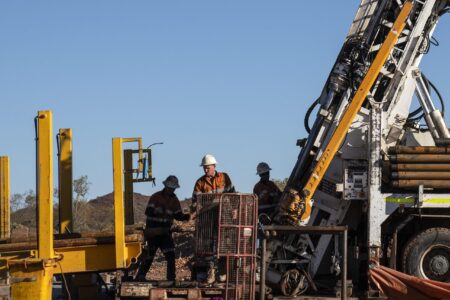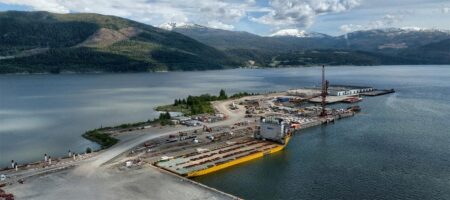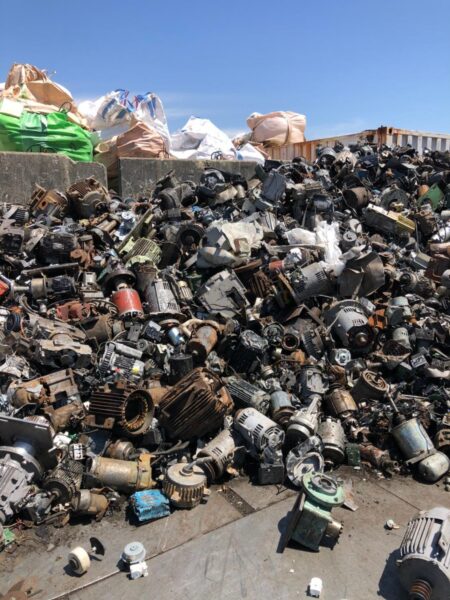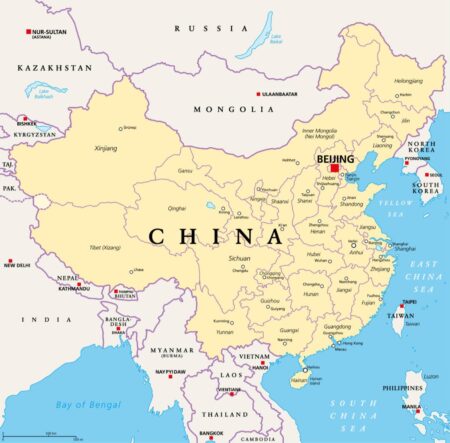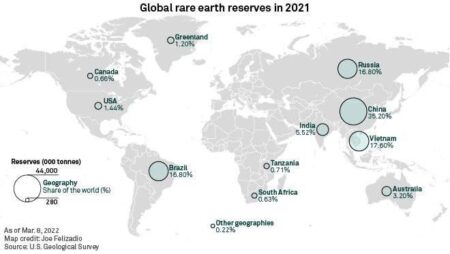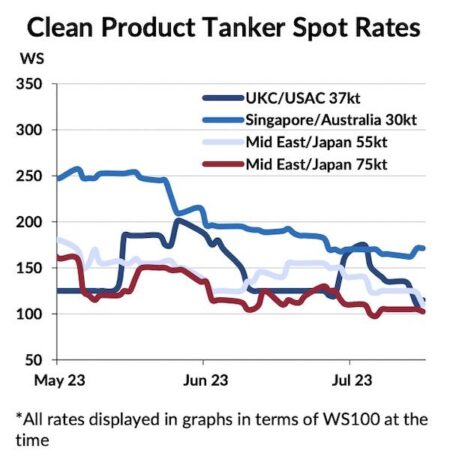Canada is rapidly establishing itself as a global powerhouse for raw materials, fueled by its abundant reserves of essential minerals and a strong commitment to sustainable practices. Experts believe this trend not only highlights Canada’s potential but also positions it as a crucial player in satisfying the world’s ever-growing demand for resources.
Browsing: resource management
Australian miners are poised to benefit from China’s new restrictions on rare earth exports. As Beijing tightens its grip on this strategic resource, Australian firms are expected to fill the supply gap, bolstering their market position and boosting revenues.
Canada’s Minister is advocating for a doubling of LNG Canada‚Äôs capacity to meet growing demand and strengthen energy exports. The proposal includes an upgrade to western pipelines, highlighting the government’s focus on expanding the nation‚Äôs LNG potential.
A recent study highlights that Japan’s scrap metal supply can effectively support the country’s electric arc furnace (EAF) sector. This shift towards increased recycling could enhance sustainability while bolstering domestic steel production capabilities.
White Energy has successfully acquired a majority stake in the Specimen Hill Project located in Australia, enhancing its position in the mining sector. This strategic investment is expected to bolster the company’s growth and operational capabilities in resource extraction.
Despite ongoing geopolitical tensions, Russian President Vladimir Putin is signaling a willingness to enhance Arctic cooperation. He emphasizes the region’s strategic importance for trade and resource development, seeking collaborative efforts amidst global rivalries.
US lawmakers are being called upon to intervene in China’s activities in the Democratic Republic of Congo, where it is accused of exploiting critical mineral resources. Advocates warn that such practices could have severe geopolitical and environmental implications.
A newly released map highlights Australia’s significant rare earth deposits amid escalating tariff disputes. As global demand increases, strategic resources may play a pivotal role in international trade dynamics and geopolitical tensions.
The U.S. has paused negotiations with Canada regarding water-sharing agreements for the Columbia River, citing unresolved issues. This decision raises concerns over regional water management and ecological impacts as both countries face climate challenges.
Indian refiners are increasingly sourcing oil from Latin America and Africa to compensate for the loss of Russian crude, as geopolitical tensions reshape global supply chains. February data highlights a strategic pivot amid shifting market dynamics.
Spain is set to launch an extensive mapping initiative to identify critical resources as part of its strategic push for raw materials. This effort aims to bolster the country’s supply chain resilience and reduce dependency on imports, supporting sustainable development.
Ukrainian President Volodymyr Zelensky announced that Ukraine is prepared to sign a key minerals deal with the United States. This agreement aims to bolster cooperation in resource extraction and enhance energy security amid ongoing geopolitical tensions.
Argentina’s crude oil and natural gas production is approaching record highs, according to the Energy Information Administration (EIA). This surge reflects the country’s growing role as a key player in the South American energy landscape, driven by robust investments and technological advancements.
Canada stands at the forefront of the critical minerals sector, crucial for green technologies and battery production. With vast resources and a commitment to sustainable mining, Canada can bolster its economy while contributing to global climate goals.
Argentina has mobilized military forces to safeguard its waters as a significant Chinese fishing fleet encroaches on its exclusive economic zone. The deployment aims to protect national interests amid rising tensions over maritime resource management.


